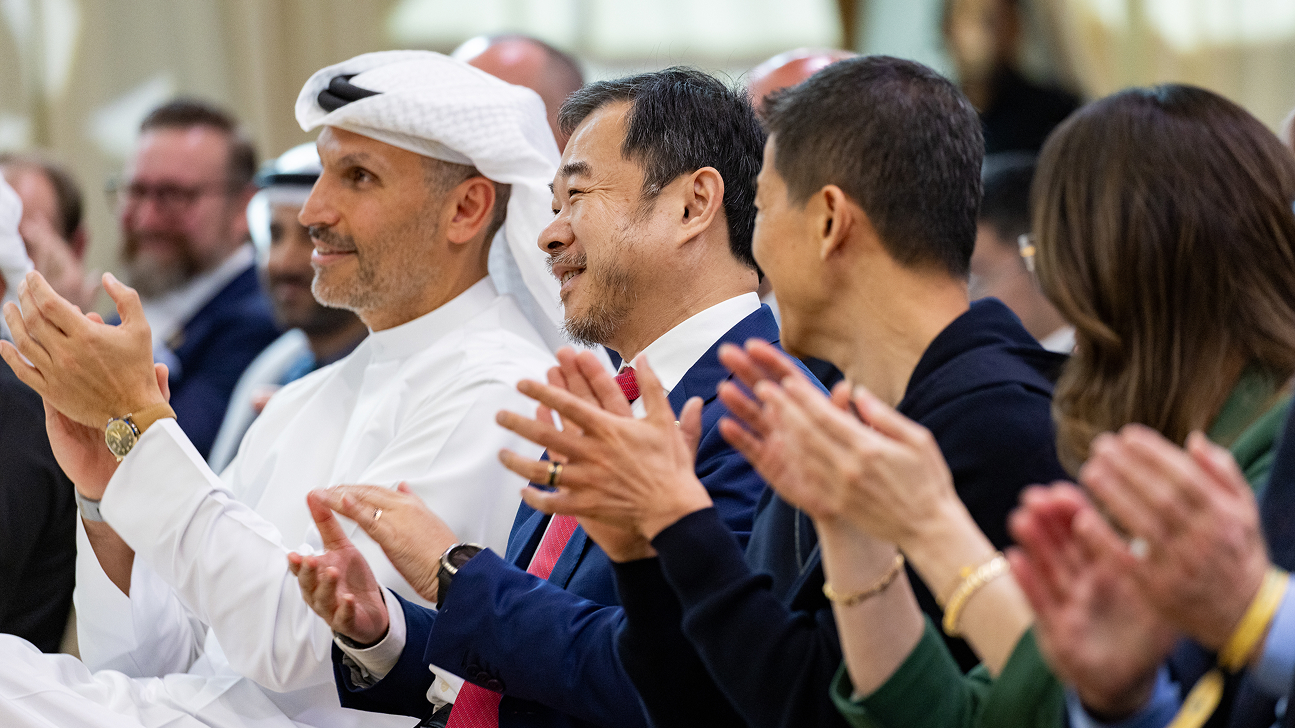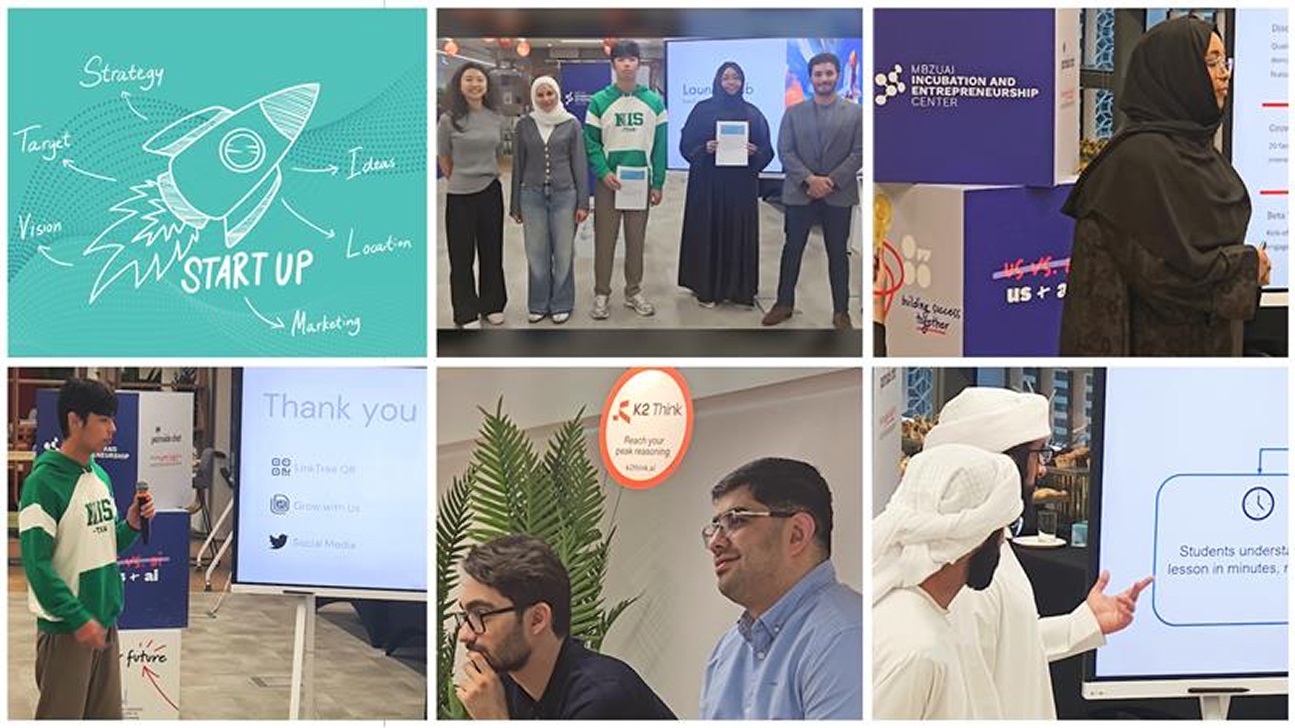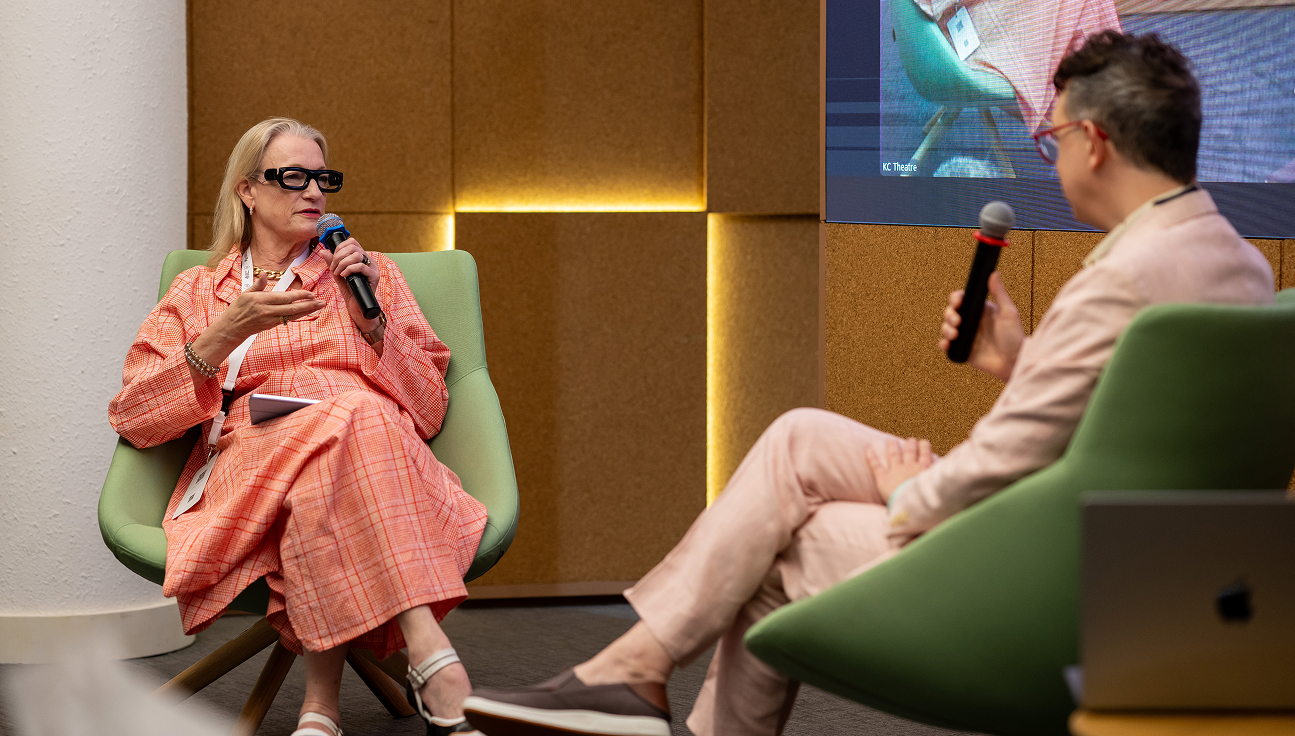AI impacts must be ethical
Monday, January 17, 2022

Artificial intelligence safety, ethics and cultural/social impacts led the final module of the inaugural MBZUAI Executive Program on Saturday, January 15, 2022.
Titled ‘AI and Policymaking,’ the session took on a debate about the ethical concerns and dilemmas entailed with AI advancements and implementation. It also visualized the impact of AI on the future of society, and assessed the risks and benefits of the human-machine relationship.
Ethical AI is important to MBZUAI and UAE leadership, and it supports Abu Dhabi’s efforts to build and sustain an AI-based knowledge economy.
AI and Policymaking
Professor Tom M. Mitchell and Professor Justine Cassell jointly presented on topics including: machine learning bias, privacy, security, AI and jobs, AI and education, and the uses and misuses of AI.
Professor Tom M. Mitchell is the Founders University Professor at Carnegie Mellon University (CMU), where he founded the world’s first machine learning department, and where he recently served as interim dean of the School of Computer Science. Mitchell is a widely covered and respected researcher in machine learning, artificial intelligence, cognitive neuroscience, and the impact of AI on society.
Professor Justine Cassell is the Founding International Chair of the PRAIRIE Institute for Interdisciplinary Research in Artificial Intelligence and is currently on leave as a professor at CMU. She has consulted for governments, industry, and academia on the societal impact of AI.
Once machines have human-like capabilities, can they be used to evoke the best communicative skills that humans are capable of—the richest learning? This is the goal of Cassell’s research—to develop technologies that evoke from humans the most human and humane of our capabilities, and to study their effects on our evolving world.
Mitchell and Cassell are among 16 eminent faculty in artificial intelligence and machine learning from across the globe to be featured as part of the Executive Program.
The Executive Program, which is headed up by MBZUAI President, Professor Eric Xing, is a uniquely powerful learning experience for high-level decision makers. Participants spend 12 weeks learning from the global elite in AI-related research, with the end goal of supporting a range of improvements in healthcare, transportation, education, industry, and more.
Forty-two participants in total make up the first cohort of the Executive Program that includes a large number of ministerial leadership and top industry executives. The program seeks to support the UAE’s mission to become a world leader in AI through education, capacity building, innovation, and research and development.
About the instructors
Professor Tom M. Mitchell
E. Fredkin University Professor, Carnegie Mellon University
Professor Tom M. Mitchell is the Founders University Professor at CMU, where he founded the world’s first Machine Learning Department, and where he recently served as Interim Dean of the School of Computer Science. Mitchell’s research has focused on machine learning, artificial intelligence, cognitive neuroscience, and the impact of AI on society. His research has been widely covered in a variety of public media, from the New York Times, CBS’s 60 Minutes, and PBS’s NOVA Science NOW to Chinese national television.
Mitchell has advised several government committees regarding artificial intelligence, including testifying to several U.S. congressional committees on its potential uses and impacts. He is an elected member of the U.S. National Academy of Engineering, the American Association of Arts and Sciences, the American Association for the Advancement of Science, and is Past President of the Association for the Advancement of Artificial Intelligence. In 2015, he was awarded an honorary Doctor of Laws degree from Dalhousie University for his fundamental contributions to machine learning and cognitive neuroscience. He authored the well-known and highly regarded Machine Learning textbook in 1997 among others.
Professor Justine Cassell
Founding International Chair, PRAIRIE Institute for Interdisciplinary Research in Artificial Intelligence
Professor Justine Cassell is currently on leave from CMU to hold the founding international chair at the PRAIRIE Institute for Interdisciplinary Research in Artificial Intelligence, and to serve as senior researcher at Inria Paris. Before going on leave, she was Associate Dean of Technology Strategy and Impact in the School of Computer Science at CMU, and Director of the Human-Computer Interaction Institute. Cassell has received the MIT Edgerton Prize, Anita Borg Institute Women of Vision award, the AAMAS Test of Time paper award, and the National Academy of Sciences Henry and Bryna David Prize for Social Sciences applicable to policy. She is a fellow of the AAAS, Royal Academy of Scotland, and the ACM.
Cassell has consulted for governments, industry, and academia on the societal impact of AI, and was invited to speak on the topic at the World Economic Forum seven years running. Her research interests originated in the study of human-human conversation and storytelling. Progressively she became interested in allowing computational systems to participate in these activities. Cassell is credited with developing the Embodied Conversational Agent, a virtual human capable of interacting with humans using both language and non-verbal behavior.
Related
MBZUAI marks five years of pioneering AI excellence with anniversary ceremony and weeklong celebrations
The celebrations were held under the theme “Pioneering Tomorrow: AI, Science and Humanity,” and featured events, lectures,.....
- celebration ,
- five year anniversary ,
- ceremony ,
- event ,
- board of trustees ,
- campus ,
- students ,
- faculty ,
MBZUAI's Launch Lab equips alumni and students with practical startup tools
The six-week pilot program brought alumni and students together to turn early startup ideas into tangible ventures.
- entrepreneurship ,
- alumni ,
- startups ,
- alumni relations ,
- launch lab ,
Designing the human side of AI
MBZUAI’s inaugural HCI Symposium explored how people will live and work alongside AI, and how to ensure.....
Read More

